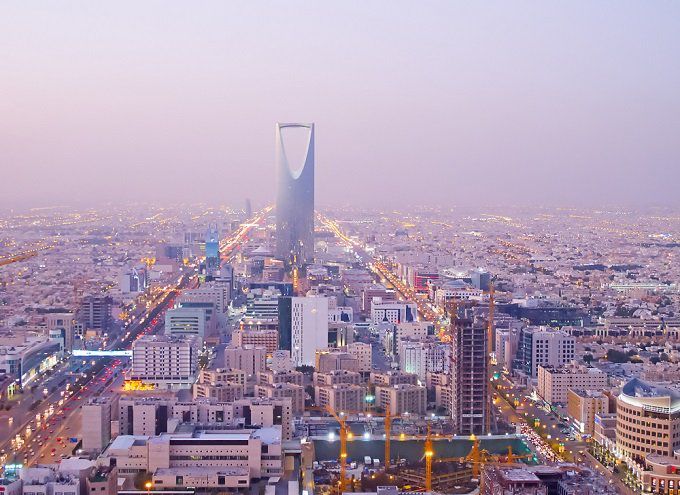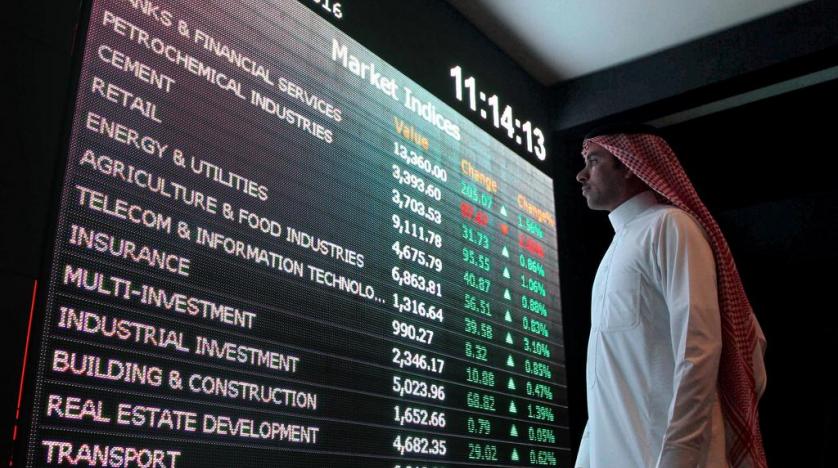Even in an era of falling oil prices, the stock exchange in Saudi Arabia still dominates investment in six member countries of the Gulf Cooperation Council. International investors looking to expand their horizons should know that this is not a market for people with large pockets. Only institutional investors can trade on the Saudi Stock Exchange. For the Saudi Stock Exchange, a qualified foreign investor has at least $5 million in assets under management and has been in business for at least five years. Even if you aren't a billionaire, investors can still invest modest amounts in Saudi Arabia or the region via any of a few exchange-traded funds.
Saudi Stocks: Limits on Direct Investment
- Foreign investors may not own more than 5% in shares of any company.
- Foreign investors may own no more than 49% of any company's shares, whether resident or not.
- Qualified foreign investors can collectively own 20% of shares in a single company and 10% in all companies on the exchange.
Foreigners looking to invest in Saudi Arabian stocks should contact one of the international institutions with business relations with Saudi Arabia. There are two global banks with offices in Riyadh: Credit Suisse Group and Morgan Stanley. These branches serve as hubs for qualified foreign investors who wish to invest in any GCC nation.
About the Tadawuhl
Only 150 companies are listed on Tadawuhl, despite their prominence in the Arab world. The main index that tracks the movement of these companies is the Tadawuhl All Share Index. It's not surprising that Saudi Aramco, the largest state-owned oil company in the world, is included among them. Other options include the Arab National Bank, Al Tazaj fast-food chain, and Jarir Bookstore.
The Heritage Foundation says that the decline in oil prices and the production of its main export product, Saudi oil, has led to modest economic growth over the last few years. It is still one of the 20 largest economies in the world, and it remains the largest Middle East economy. Saudi Arabia has been forced to diversify its economy by promoting private companies unrelated to oil. This is despite the long-term decline in oil demand. The Saudis are even exploring solar energy.
Saudi Aramco and Saudi Arabia's Economy
The Saudi Arabia Oil Company is Saudi Arabia's largest corporation, also known as Saudi Aramco. The company is the world's largest company, with an estimated value of $1.74 trillion by 2020. However, the state controls it and is not accessible to investors. There are, however, many publicly traded companies that form the auxiliary market for petrol supply.

The Saudi government is trying to diversify its economy, despite the oil industry's dominance. It also wants to promote growth through privatization. Already, industries like electricity and telecoms have been privatized. New "economic cities" are being created to encourage other developments.
The country announced in May 2012 that it would enter the alternative energy market in a major way. In the next ten years, the government plans to create as many as 15,000 jobs by focusing its efforts on solar energy. This includes both manufacturing solar panels and operating solar farms. Saudi Arabia plans to produce 50% of its energy using renewables by 2030 and will plant 10 billion trees over the next decade. Saudi Arabia's Green Initiative is a plan to make it a leader in creating a greener world.
Pros
Saudi Arabia is a great investment destination, especially when oil prices rise. Some investors are concerned about the country's long-term viability, given its dependence upon crude oil. It remains to be seen if the government will diversify into other industries. There are many benefits to investing in Saudi Arabia:
Significant Capital to Spend
Saudi Arabia has a strong balance sheet due to its large crude oil revenues. This gives the government funds to invest in economic development programs that will stimulate the economy.
Recent Privatizations
Saudi Arabia's government took measures to privatize sectors, including telecom and electricity, to increase investment from outside.

Cons
Dependence on Crude Oil
Saudi Arabia's largest source of income is crude oil and other forms, so any drop in crude oil prices could have serious negative consequences for the country.
Monarchy
A monarchy system of government governs Saudi Arabia. The king performs all three functions, including legislative and executive. This has led to higher corruption ratings from Transparency International.




